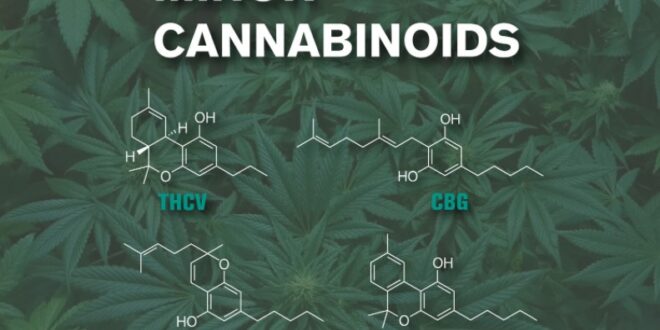It’s no new news that cannabis has the potential to be an effective form of therapy or medication for people suffering from anxiety, seizures, and even cancer. But, did you ever take a step back to think – How is a plant that effective as a medicine for multiple medical conditions?
Well, phytocannabinoids are the answer. These chemicals can interact with your body’s systems and improve your health. Some of the most popular forms of these phytocannabinoids are CBD and THC. They are abundantly found in cannabis and two of the most researched cannabinoids too. Apart from research, they are also being used by people medicinally by getting a recommendation from onlinemedicalcard.com.
But, now that the cannabis industry is evolving, research is getting better and revealing other lesser-known yet equally effective cannabinoids. So, let’s look beyond CBD and THC and explore minor cannabinoids.
Table of Contents
What Are Minor Cannabinoids?
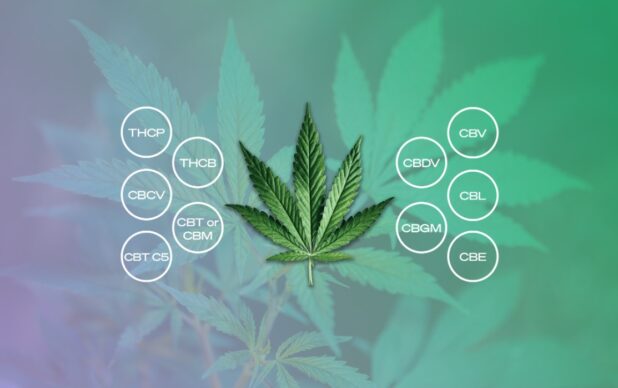
Cannabis Sativa plants contain a multitude of chemical substances including cannabinoids, flavonoids, and terpenes. Including CBD and THC, the plant contains more than a hundred cannabinoids in different concentrations. The more abundant cannabinoids are known by the name of major cannabinoids and low-abundant ones are called minor cannabinoids.
Below are the Big Six cannabinoids that are more researched by the scientists:
- THC – Tetrahydrocannabinol (Major)
- CBD – Cannabidiol (Major)
- CBG – Cannabigerol (Major)
- CBN – Cannabinol (Minor)
- CBC – Cannabichromene (Minor)
- THCv – Tetrahydrocannabivarin (Minor)
Now, as our topic is limited to minor cannabinoids, let’s read in detail about some of the popular minor cannabinoids and their potential effects.
CBN
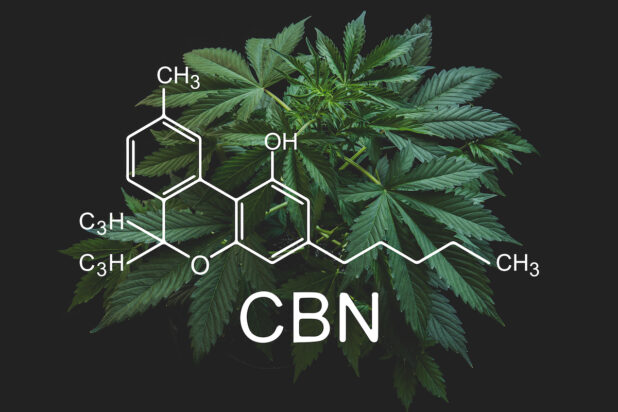
CBN or Cannabinol is one of the emerging minor cannabinoids in the cannabis industry. It is a non-psychoactive compound found in trace amounts in cannabis plants and is majorly extracted from aged or stored cannabis. Usually, the cannabinoid is extracted from the psychoactive component, that is, THC (tetrahydrocannabinol).
The cannabinoid’s growing popularity has made it a subject of comparison with CBD, one of the most prevalent compounds of the cannabis plant. Both cannabinoids share some similarities and dissimilarities. Not only that but it is also said that the use of both the cannabinoids in combination yields some noticeable effects.
Benefits of CBN
- Sleeping aid
- Relaxation
- Pain-relieving
- Anti-inflammatory
The compound’s ability to offer better sleep is one of the popular reasons why different CBN products such as gummies and oil are widely used. A study conducted on rat models also suggested that CBN can improve the sleep pattern and could also boost appetite.
CBG
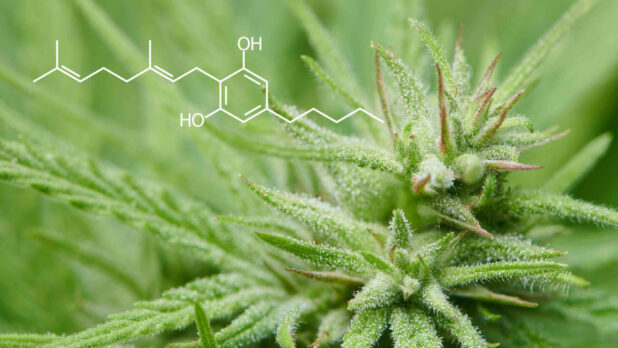
Followers of cannabis must have heard about CBG or cannabigerol as the mother of all cannabinoids. CBG is one of the minor constituents of cannabis and is a decarboxylated form of cannabigerolic acid (The parent molecule from which other cannabinoids are incorporated). The interesting fact is that most of CBG is converted into other cannabinoids such as THC and CBD during the plant growth leaving only 1 % of CBG for extraction.
The research around CBG use for medical purposes has been actively going on. The compound produces some significant effects helping patients suffering from several medical conditions. Now, one must be wondering – how does CBG work?
Well, like all other cannabinoids, CBG also works by influencing our body’s endocannabinoid system (ECS). ECS is a complex system with a collection of enzymes, endocannabinoids, and receptors (CB1 and CB2 are the two major ones).
Endocannabinoids bind with these receptors which regulate different functions such as pain, pleasure, mood, appetite, etc. Different studies show that CBG, specifically, interacts with CB2 receptors.
Benefits of CBG
- Anti-inflammatory
- Neuroprotective properties
- Antimicrobial effects
- Appetite stimulator
THCV
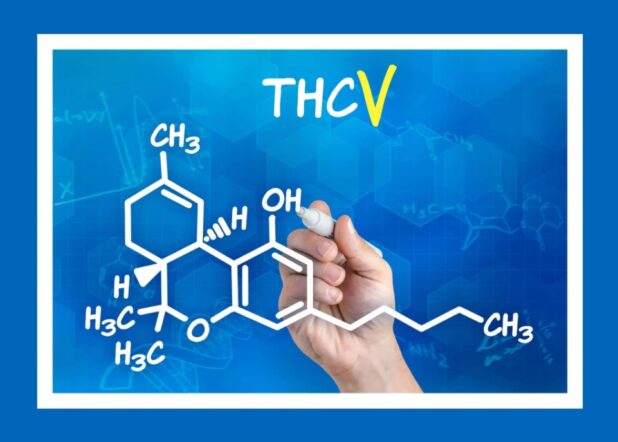
THCV or tetrahydrocannabivarin is one of the fastest-growing cannabis compounds on the market. All thanks to its energy-boosting and appetite-curbing properties. More and more people, especially the younger generation, are interested in exploring the effects of the compound, again, making it one of the highlighting reasons for its high demand.
Gazing at the name, THCV, one might compare it with the effects of THC, the psychoactive compound responsible for causing the ‘high’ feeling that is commonly associated with marijuana consumption. However, it is to be noticed that THCV does not contain intoxicating properties like THC and is rather known for acting as an appetite stimulator.
Different animal studies on ‘THC and appetite’ suggest that TCHV may reduce the urge to have frequent meals and hence, can prevent weight gain. Below are some of the medical conditions that TCHV can help manage with-
- Parkinson’s disease
- Epilepsy
- Chronic pain
- Inflammation
- Acne
- Psychosis
Well, just like other minor cannabinoids, the scientific research on THC for medical purposes is much limited. More structured and detailed research is required to boldly claim the cannabinoid’s effects.
CBC
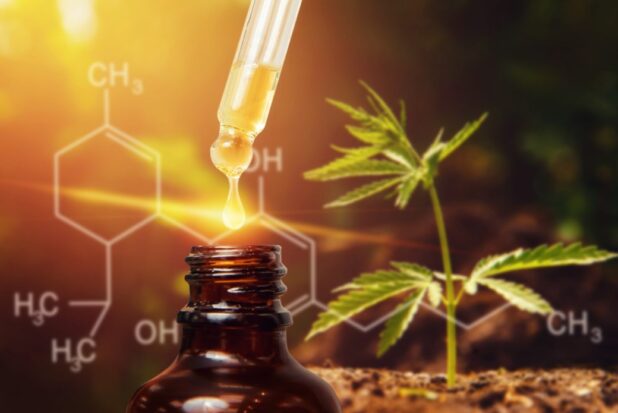
Cannabichromene (CBC), also known as cannabichromene, cannabichromene, pentyl cannabichromene or cannabichromene, is a phytocannabinoid found in the cannabis plant. Too complex, right? Well, these minor cannabinoids are complex as they are found in trace amounts leaving a narrow space for scientists to conduct detailed research.
Now, with all the available data on CBC, it is known that CBC is extracted from cannabigerolic acid and has some profound effects. Similar to CBD, the cannabinoid is non-intoxicating and is one of the prominent compounds found in the genus cannabis. Below are some of the benefits of CBC.
Benefits of CBC
- Antidepressant
- Analgesic
- Pain-relief
- Anti-bacterial
- Fights Acne
Delta 8 THC
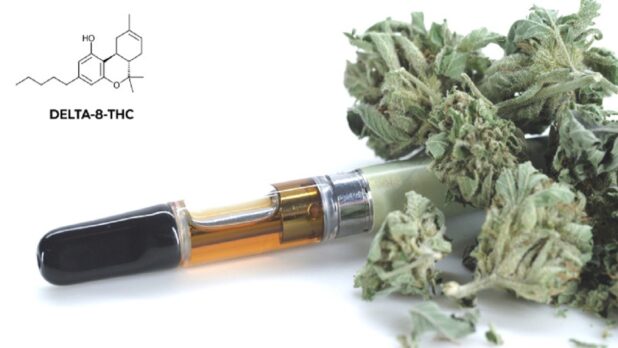
Delta-8 THC or delta-8 tetrahydrocannabinol is another on the list of most trending minor cannabinoids in the cannabis market. Scientifically recognized as the positional isomer of delta-9 THC, it’s a bit less potent than delta-9. Though the compound possesses some therapeutic properties, its use has not been evaluated or approved by the Food and Drug Administration (FDA). Below are some of the medicinal benefits associated with delta-8 THC.
Benefits of Delta-8 THC
- Neuroprotective properties
- Boosts appetite
- A smooth psychoactive experience
- Good for digestion
- Promotes better sleep
- Pain-relief
- Body relaxation
Bottom Line
With the growing popularity of cannabis in the treatment of different medical conditions, the demand for both minor and major cannabinoids will see a huge spike in the coming future. Having said that, detailed research is yet required to study these cannabinoids and their long-term effects on the human brain and body. Till then, smart and rational use of different cannabinoids is necessary to prevent any sort of side effects in the long run.
 World Magazine 2024
World Magazine 2024
